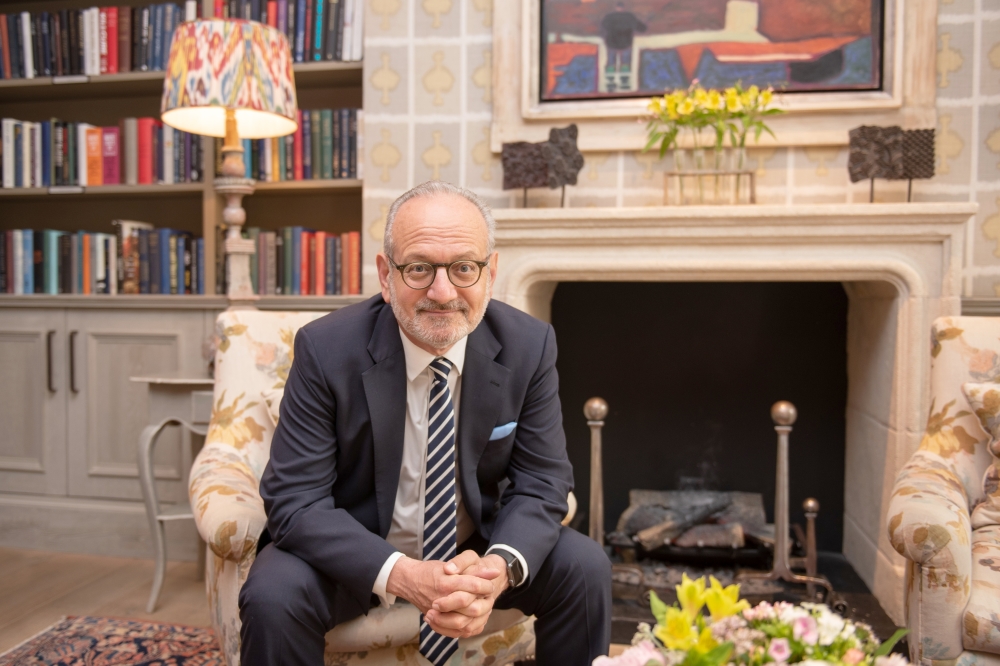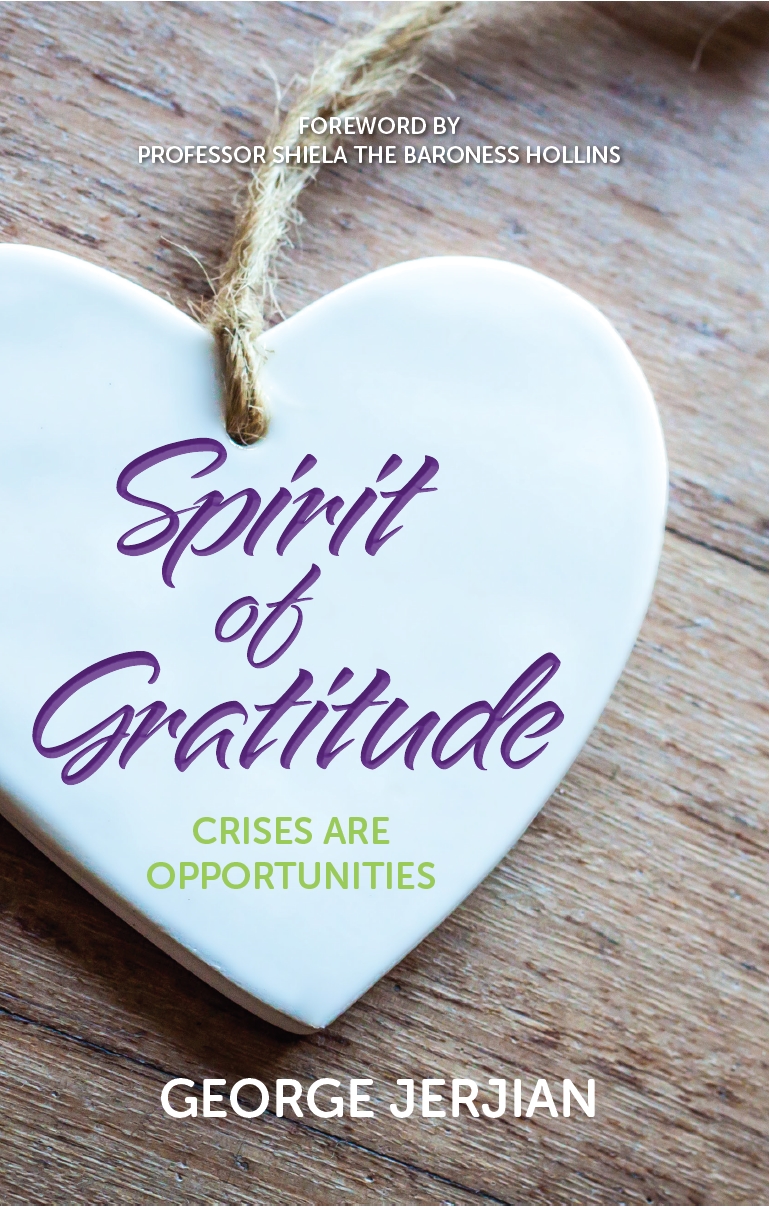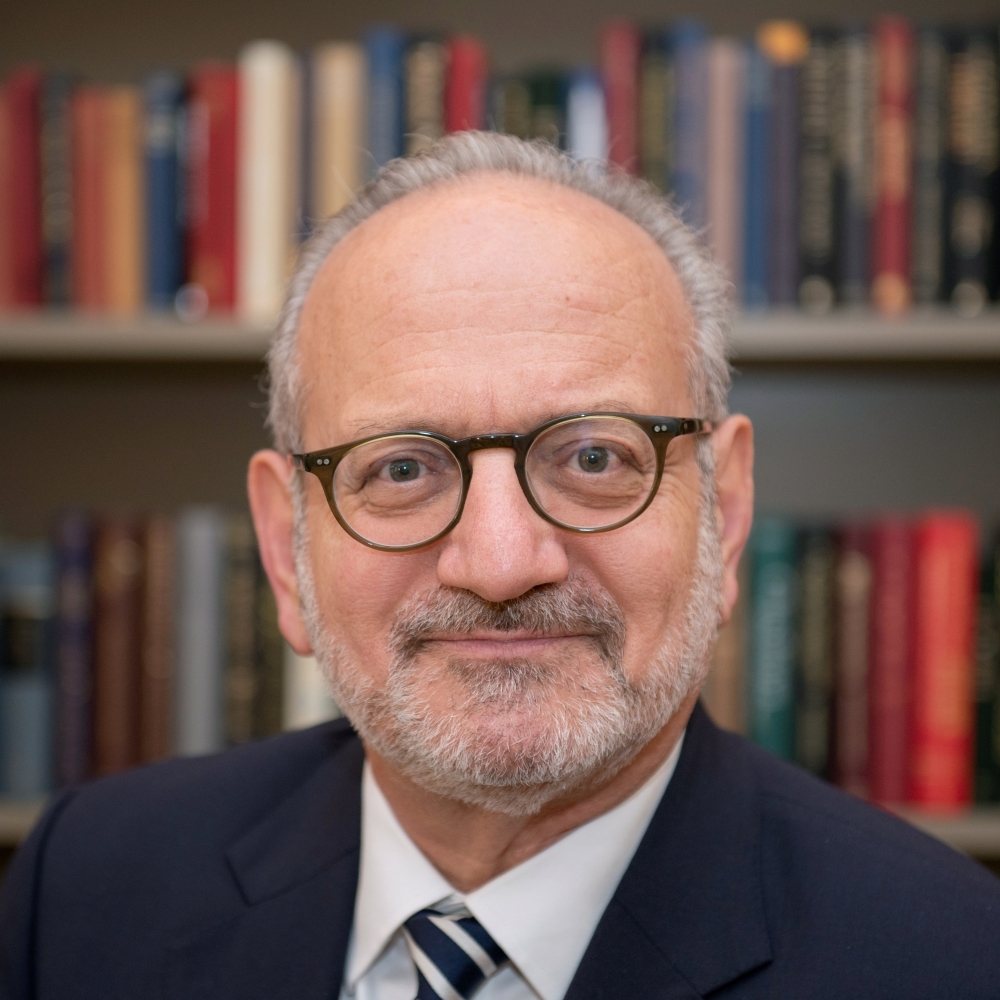In our minds, the words “cultivation” and “harvest” should trigger images of land, crops, sowing and reaping. For individuals, they may also trigger images of well-being, wealth, and happiness. For business women and men, no doubt they elicit images of investment and revenues.

Author George Jerjian writes for Female First
Gratitude is as old as man. It is the central underpinning in all religions. The Jews have Passover and the Psalms; the Christians have the Eucharist, which derives from the Greek for thanksgiving; the Muslims have the Shukr in the Quran and Ramadan is a full month of gratitude; the Hindus express gratitude in countless small acts of hospitality and service towards the divine presence at home or in the temple shrine; for Buddhists, gratitude is the main currency of the ‘economy of gift’ that binds monastics to householders; American Indians gave thanks to the animal spirits for their food. Man’s dependence on the Universal Power or God, nature, and on his fellow man makes gratitude a compulsion for survival.
So what is Gratitude? The dictionary defined it as thankfulness, thanksgiving, or gratefulness, from the Latin word gratus ‘pleasing, thankful.’ It is a feeling of appreciation felt by the recipient of kindness, gifts, help, favours, or other types of generosity, towards the giver of such gifts. Yet, it is also so much more…
So, what is the significance of gratitude for us?
German philosopher, Martin Heidegger, wrote extensively about the connection between Thanking and Thinking, especially given that these two words share the same Old English and proto-German word root – Thanc, and are, in a sense, inextricably linked. Our mind is not just our mental faculties or our thinking mind. Our mind consists of both a Thinking mind (conscious Mind) and an Emotional mind (sub-concious Mind), and if they are to be effective, they must work in tandem. In the last few centuries, in our Western culture, we have treasured our Thinking mind and devalued our Emotional mind, and we now wonder why mental health problems have increased exponentially.
We need to realise that the mental processing that we do each day to solve problems is not the same as thinking. Thinking is much deeper. Henry Ford once said, “Thinking is the hardest thing to do, that’s why so few people do it.” We, humans, crave for security and we will go to any lengths, however, irrational, to obtain that security, but in the process of acquiring material things, we squander an even more valuable resource – Time. Money is replaceable, but time is not. Yet we will go to extreme lengths to save money. We do this because we are not thinking correctly; we are not thinking deeply with both our thinking mind and our emotional mind.
The conscious mind is less than one percent of our mind, whereas the sub-conscious mind is over 99 per cent. Yet, we in our Western culture have focused exclusively on the one per cent of our mind. We may have run out of new lands to conquer and colonise, but we now have a new frontier – our sub-conscious mind – to discover, explore, and cultivate.
How many types of gratitude are there?
Broadly speaking, there are three types of gratitude. First, there is the gratitude that we see expressed as part of our social etiquette, such as when someone gives us a gift, it is polite to thank them. Second, there is the gratitude we feel for all the people and blessings in our lives. Third, there is the gratitude we have for the crises we have encountered in our lives, and, for most people, we feel this, after a great deal of time has passed. It is crises that opens us to opportunities we could not have imagined.
How are crises and gratitude connected?
The word ‘crisis’ comes from the Greek for ‘decision,’ and the word ‘decision’ comes to us from the Latin meaning ‘to cut or sever.’ To decide means to choose, and once you choose, it means you have cut off all other options. In old English, the word ‘crisis’ meant a ‘turning point,’ usually for a disease. Each day, we all make one or two big decisions and hundreds of small decisions, any one of which could have ramifications well beyond that decision.
When crises occur in our lives, it is in a sense, a turning point, where our old life dies, and a new life opens up for us. Initially, we may see it as a catastrophe and fight against it, but when we look at it after a passage of time, we can see that it was a time for us to grow. Life is a journey, and crises are finger posts showing us that we must move on. So, when a crisis comes into our lives, we must face it head on with courage and faith, and by cultivating gratitude in the midst of the crisis, we can not only find a way through it, but we can reap a rich harvest.

George Jerjian is one of the UK’s leading communications specialists and a sought-after public speaker. Since 2017 he has worked alongside Bob Proctor, the acclaimed motivational coach, at the renowned Proctor Gallagher Institute in Arizona, US. His new and 10th book, Spirit of Gratitude, an uplifting spiritual memoir to help readers identify and overcome life’s challenges and crises, is out now on Amazon UK priced £9.99 in paperback. For further information visit www.SpiritofGratitude.com and www.GeorgeJerjian.com
Exclusive Q&A with George Jerjian
Female First sits down with the celebrated life coach and acclaimed author, George Jerjian, to discuss his latest book and the link between gratitude and success.
Female First (FF): George, where did the idea for your new book, 'Spirit of Gratitude', come from?
George Jerjian (GJ): The idea for the title was two-fold. First, I became familiar with the word ‘gratitude’ after I was diagnosed with bone tumour in 2007 and given six months to live. After three weeks of tests, I was told the tumour was benign and I would live: I was on extra time. This encounter made me realise that time is the most precious commodity we have. Second, I was always fond of flying since I was a child and the story of Charles Lindbergh and his plane, Spirit of St Louis, had somehow captured my imagination., So, Spirit of Gratitude is in homage to my extra time and to Lindbergh’s creativity and self-belief.
FF: From your experience, how does implementing gratitude into your daily life transform your perspective and situations?
GJ: When we implement gratitude into our daily lives, it transforms the way we see ourselves, other people and things. Gratitude needs to be practiced each day, each hour, each minute. If we don’t practice gratitude, it is inevitable that we become entitled. When we are entitled, we are in a state of dissatisfaction, discomfort, and dis-ease. Practicing gratitude changes our perspective, and if we change the way we look at things, the things we look at also change. Changing our thoughts changes our feelings, and changing our feelings changes our actions. When we practice gratitude, it aligns our spiritual, mental and physical dimensions, which allows power to flow through us seamlessly.

FF: Do you believe that there is a link between gratitude, and living a successful, fulfilled life?
GJ: Absolutely. I think that when we say we have a successful and fulfilled life, we mean we have an abundance of spiritual, mental and physical wealth. We have joy in our hearts, we have peace of mind, and we have health and well-being. The whole point of success is that it must touch all areas of our lives, otherwise, for example, what is the point of success without joy? The essence of my book – Spirit of Gratitude: Crises are Opportunities – is to show that we should be grateful most especially for the crises in our lives because it is the crises that are the window to the opportunities waiting for us.
FF: What is your best piece of advice for readers of Female First, when it comes to living with greater purpose and achieving our full potential, both personally and professionally?
GJ: The first and most important thing is to be yourself, your true self. For most of us, this is not easy. We try to be all things to all people. I will share with you a wonderful statement that is attributed to the late Bill Gove, one of America’s most prolific speakers, who once said: “If I got to be free, I got to be me. Not the way my parents want me to be; not the way my siblings and friends want me to be; not the way my spouse or partner wants me to be; not the way my children want me to be. If I got to be free, I got to be me.”
The second piece of advice is – Love yourself. Most people do not love themselves. They believe that they should love others. They seek love outside themselves. If you do not love yourself, how can you expect others to love you? Also, if you do not love yourself, how can you love anyone else? Everyone is seeking love, but they seek it in the wrong place. Love yourself first. Be gentle with yourself, and then you can be gentle with others, and only then, can you love others.

